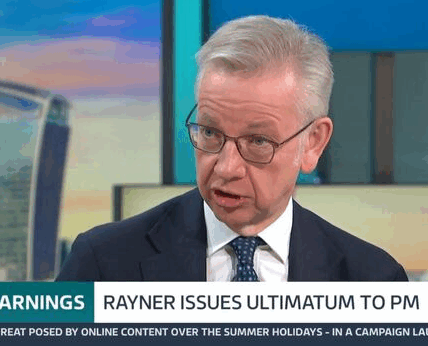Growing pressure on Chancellor Rachel Reeves on ‘fiscal drag’ which is making poorest workers pay more

Chancellor Rachel Reeves is rumoured to be considering freezing tax thresholds in the Busget (Image: Getty)
A campaign urging an increase to the income tax threshold has been given a huge update after Treasury officials responded. A soaring petition on the Parliament website has hit more than 32,000 signatures – and is adding to mounting pressure on Chancellor Rachel Reeves to raise the personal tax allowance for Britain’s lowest earners ahead of the Autumn Budget on 26 November.
Concerns are growing that millions more individuals, including many amongst the nation’s poorest workers, have been caught in the tax system through ‘fiscal drag’. This stems from the lowest income tax threshold remaining frozen at £12,570 since 2021, whilst inflation driving up wages has been surging.
It is especially timely as there are concerns Ms FReeves could freeze the thresholds again – from the current 2028 to 2030. The freeze means some of the most financially vulnerable workers are taxed as soon as their pay goes past £12,570 – and because it has stayed static, inflation and rising wages mean millions more are now paying tax than would have been had it increased as normal.
The new petition on the Parliament website is urging the Government to increase this threshold to £20,000. The petition, created by Shannon Keene urges Rachel Reeves to: “Raise the income tax personal allowance from £12,570 to £20,000.
“This would help with increasing rent, mortgages, Council tax, and Gas and Electric bills. Some families can’t afford to go back to work after children due to childcare costs wiping their whole income! We think that we are currently paying ridiculous amounts of tax, and that minimum wage isn’t even enough to support an average family.
“We believe that this would lead to a massive increase on people willing to look for work, instead of people not wanting to, due to it being too expensive to now live.” If the petition hits 100,000 signups it should prompy a debate with MPs, putting pressure on the Government which would have to defend its position.
This week the Treasury has responded with a statement and said: “The Government is committed to keeping taxes for working people as low as possible while ensuring fiscal responsibility, so we will not increase the Personal Allowance to £20,000. The Government is committed to keeping taxes for working people as low as possible while investing in public services and not taking risks with the economy.
“The Government currently has no plans to increase the Personal Allowance to £20,000. Increasing the Personal Allowance to £20,000 would come at a significant fiscal cost of more than £50 billion per annum. This would reduce tax receipts substantially, decreasing funds available for the UK’s hospitals, schools, and other essential public services that we all rely on. A £50 billion cut in public services is equivalent to slashing roughly a quarter of the NHS Budget, or around 80% of defence spending.
“To support the lowest paid workers in our economy, the Government asked the Low Pay Commission to account for the cost of living when making their recommendations on the minimum wage rates to apply from April 2025, for the first time. The government is also supporting families through the universal offer of 15 hours of government-funded childcare for all parents of 3- and 4-year-olds and eligible working parents of children aged 9 months and above can access 30 hours a week in free childcare.
“The Government keeps all taxes under review as part of the policy making process. The Chancellor will announce any changes to the tax system at the Budget on the 26th November in the usual way.”
The matter has generated multiple petitions, demonstrating widespread public feeling nationwide. Earlier this year, one petition demanding the threshold be raised to £20,000 gathered an impressive 281,792 signatures on the Parliament website before it stopped accepting additional supporters during the summer.
This triggered a Parliamentary debate where the Treasury put the cost at £50 billion. The earlier petition’s position as among the biggest ever recorded on the parliament website was viewed by campaigners as proof of robust public feeling on this matter. Currently, a basic tax rate of 20 per cent is applied to earnings above £12,570, whilst higher earners face a 40 per cent rate on income over £50,270 – both thresholds have remained frozen since 2021.
The controversy revolves around ‘fiscal drag’, a phenomenon stemming from the personal income tax allowance remaining frozen at £12,570 since 2021. During a Westminster Hall debate in the House of Commons earlier this year, Liberal Democrat Daisy Cooper emphasised the substantial public backing as indicating the nation’s sentiment: “The number of people who have signed it speaks to the strength of public feeling about this issue, which is a serious policy challenge for all political parties. Indeed, I think the petition does more than show the strength of feeling that exists.
“I regard it as a cry for help, because right around the country there are struggling families gripped by a cost-of-living crisis. We have a toxic combination that means that people are seeing their taxes go up but not seeing services improve. It is leading to that cry for help.”
James Murray, Exchequer Secretary to the Treasury, has warned that raising the tax threshold to £20,000 would carry a substantial financial burden. He stated: “I recognise the views of everyone who has put their name to the petition, and let me be clear that, as a Government, we want taxes on working people and on pensioners, who have worked hard all their lives, to be as low as possible.
“We were elected to put more money in people’s pockets and, crucially, we were elected to do so in a fiscally responsible way. That is a critical point to understand.
“We aim to keep taxes on working people and pensioners as low as possible, but if we were to heed the calls of some Opposition parties and abandon fiscal responsibility, it would lead to economic chaos and the collapse of public services, and that would harm working people and pensioners the most.
“Raising the personal allowance to £20,000 would cost more than £50 billion. That is more than the £45 billion of unfunded tax cuts announced by Liz Truss in her disastrous mini-Budget.”
The debate can be viewed here.
To see and back the new petition, click here.

